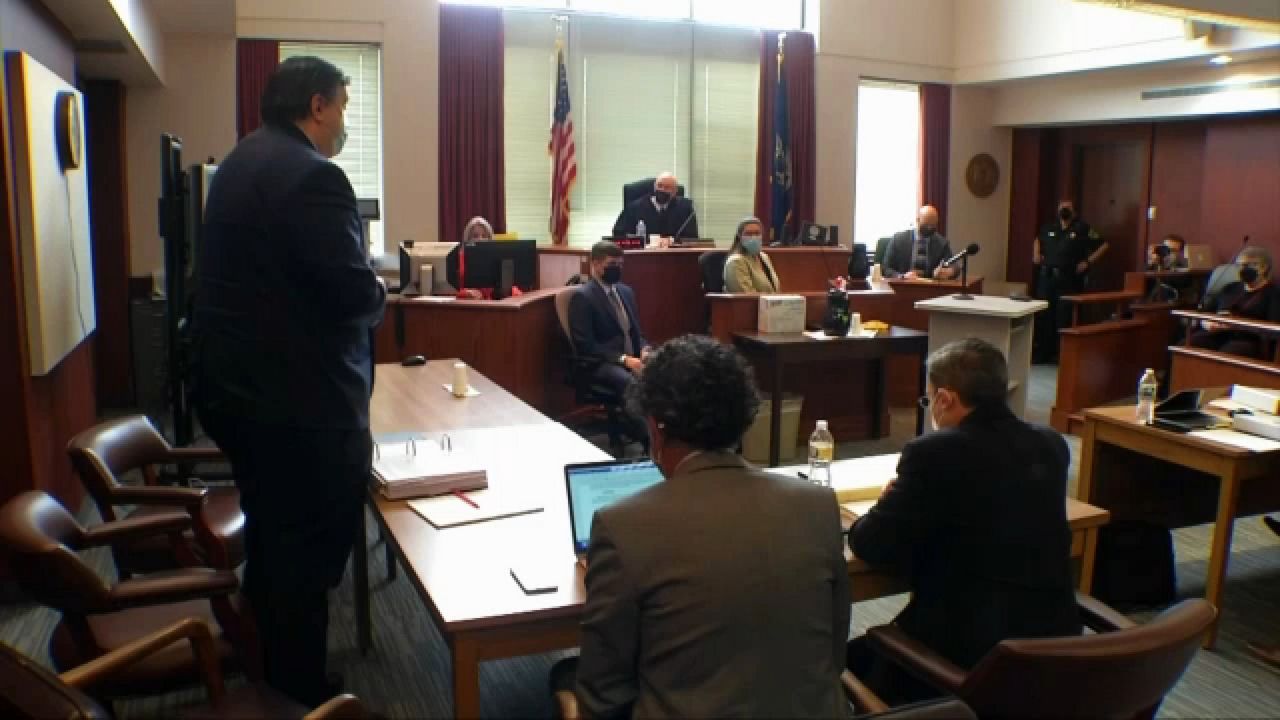A state Supreme Court justice will hear arguments in a bipartisan legal redistricting challenge to the state Assembly lines next week, days after the state Supreme Court is expected to adopt new Senate and congressional districts.
Manhattan Supreme Court Justice Laurence Love will preside over the hearing set to begin at 10 a.m. Monday, and hear arguments in the latest legal challenge to the Assembly boundaries.
"It's a longshot challenge, which they're entitled to bring, but it's just very late in the day," said Michael Li, a redistricting and voting attorney at the Brennan Center. "At some point, the election train is going to leave the station. We have to have an election. There's already going to be enough voter confusion as it is."
Republican activist Gavin Wax, Democratic Greene County businessman Gary Greenberg and Democratic gubernatorial candidate Paul Nichols filed the legal challenge to the Assembly lines Monday after two previous attempts to overturn the maps were struck down.
The Nichols v. Hochul hearing was initially scheduled for Thursday, but was delayed two extra days after state Supreme Court Justice Lyle Frank recused himself. The reason was not disclosed.
Supreme Court Justice Patrick McCallister is expected Friday to approve the new Senate and congressional lines redrawn by Carnegie Mellon University Fellow Jonathan Cervas — a special master McCallister appointed for the job after ruling April 27 that the boundaries drawn by Democrats in the state Legislature were unconstitutionally gerrymandered.
New York's primary election for U.S. House and state Senate races will take place Aug. 23. The primary for statewide offices and state Assembly seats will occur on the originally scheduled date of June 28.
McCallister has stated the Assembly maps were also drawn improperly, but ruled there is insufficient time to redraw new maps in previous challenges separately filed by Wax and Greenberg.
"This seems to be a Hail Mary effort to get a different Assembly map, but it's also not clear if there's time to do that for this year's election," Li said.
Republican plaintiffs who brought the initial case against the congressional and state Senate maps did not challenge the Assembly lines.
McCallister's ruling about insufficient time could impact Love's decision, or he could completely deviate from his colleague’s opinion.
"I think the court will take a fresh look and see," Li said of potentially overturning the Assembly lines. “[McCallister's] decision was not precedent. He denied them the right to intervene. You can file a fresh action.”
McCallister will either move to approve or amend the maps Friday. A public court appearance is not scheduled.
New Yorkers were permitted to submit public comment on the new maps to the court by 11:59 p.m. Wednesday.
Criticisms were filed by legislative leaders, including Bronx Democrat Assembly Speaker Carl Heastie and Senate Majority Leader Andrea Stewart-Cousins, a Democrat from Yonkers, who outlined objections to the racial composition and unconstitutionality of certain districts.
Republican plaintiffs wrote a rebuttal to the leading Democrats’ comments on the maps Thursday, in strict disagreement with their interpretation of fair lines.
Cervas could weigh their suggestions and make amendments to the election districts, but the maps will likely not be changed without a significant procedural or data-related error.
“There are lots of reasonable comments that have been made,” Li said. “Whether any of those rise to the level of a legal problem with a special master’s map, I think, is another question.”
Li said he hopes Cervas will issue a written report explaining his boundary-drawing decisions like the special master ordered to draw the state’s election lines in 2012.
Several officials who have publicly disapproved of the new maps, like U.S. Rep. Hakeem Jeffries, issued press releases or statements on Twitter, but did not submit official comments to the court.
But redistricting challenges could continue in the state for months after the court adopts final versions of the maps if individuals or groups decide to file an appeal or separate lawsuit.
“Things could be done [Friday], but that also could just be the end of an act and not the end of the play,” Li said.



